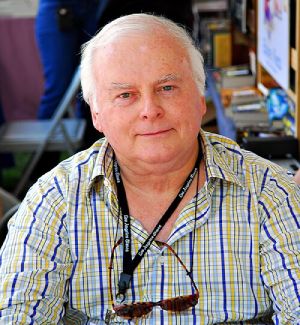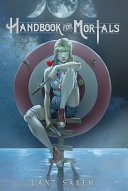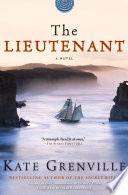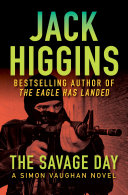Missing W.E.B. Griffin’s Military Action? Discover authors who write like W.E.B. Griffin with detailed military history, authentic combat scenes, and compelling stories of honor and duty. Find your next military saga.
Just finished another Brotherhood of War novel and craving more military fiction that combines authentic battlefield action with compelling characters? You’ve discovered what makes W.E.B. Griffin a master of the genre—his ability to blend meticulous military detail with fast-paced storytelling that keeps you invested in both the mission and the men carrying it out.
Griffin’s strength lies in his insider knowledge of military operations and his talent for creating series that feel like spending time with a brotherhood of warriors. His novels don’t just deliver explosive action; they explore the bonds forged in combat, the weight of command decisions, and the personal costs of serving your country. Whether following paratroopers in WWII or modern special operations, he creates stories that honor military service while delivering edge-of-your-seat entertainment.
If you’re searching for authors who share Griffin’s combination of tactical authenticity and compelling storytelling, you’re about to discover writers who understand that the best military fiction respects both the complexity of warfare and the humanity of those who fight. Ready for your next mission?
For more recommendations, you might also enjoy exploring authors like Harlan Coben, authors like Gillian Flynn, best detective novel series.
Table of Contents
Open Table of Contents
Must-Read Authors Like W.E.B. Griffin
1. Jack Higgins, 1929 - 2022
Jack Higgins is the pen name for Henry Patterson, a British author of thrillers and espionage novels. Born in Newcastle upon Tyne in an era of political and religious unrest, he saw first-hand the challenges of war. Higgins learned to read at a young age and then studied sociology in college before becoming a teacher. In 1959, he started writing novels and used several pen names throughout his literary career, including James Graham, Martin Fallon, and Hugh Marlowe, before settling on Jack Higgins in the late 1960s.
The Savage Day and A Prayer for the Dying, published in 1972 and 1973, were his first bestsellers, but with his 1975 book The Eagle Has Landed, he shot his way to success. The book was on the top 10 bestseller list in England for 36 weeks, and many critics state that Higgins changed the face of the war novel with his writing. As of 2016, the author had 77 books, with many of those published under the Jack Higgins mantra.
“Words become meaningless, the mind cuts itself off from reality for a little while, a necessary breathing space until one is ready to cope.”
Jack Higgins, The Eagle Has Landed
2. Stuart Woods, 1938 - 2022

Stuart Woods via Wikipedia Public Domain
American author Stuart Woods is best known for Chiefs, his first novel, which he published in 1981 and which won an Edgar Award for Best First Novel. Woods got the idea for his first novel from a blood-stained police chief badge he found at his grandmother’s house. It became popular after CBS broadcast a miniseries based on the book. After this initial success, Woods turned to a series of novels starring Stone Barrington, a former NYPD detective who started working as a lawyer.
The books were quite popular, and at the time of his death in 2022, he had 63 novels in that series. An additional book in the series was published after his death. Woods published several other series and stand-alone novels, and 70 of his books have been bestsellers.
“So people respected foxy. But they also thought he was crazy.”
Stuart Woods, Chiefs
3. Tom Clancy, 1984 - 2013

Tom Clancy via Wikipedia Public Domain
Tom Clancy is best known as the author of the Jack Ryan novels, which started with his 1984 novel The Hunt for Red October. Clancy brought the world of CIA analyst Ryan to life and wrote 19 books in the series before he died in 2013. Clancy won several awards for his work, including the Golden Plate Award from the American Academy of Achievement in 1988. The 1989 novel Clear and Present Danger was the best-selling of the 1980s. When he died, he had an estimated 100 million books in print, and 17 of his novels were number-one New York Times bestsellers. In addition, four feature films were made based on his books.
“The point of life was to press on, to do the best you can, to make the world a better place.”
Tom Clancy, Clear and Present Danger
4. Brad Thor, 1969 -

Brad Thor via Wikipedia Public Domain
Brad Thor is an American author of thriller books originally from Chicago. Before he started his writing career, Thor graduated from the University of Southern California with a degree in creative writing. The Lions of Lucerne, published in 2002, was his first novel, followed by Path of the Assassin and State of the Union.
Thor has 22 thrillers, including Blowback, which NPR named as one of the Top 100 Killer Thrillers of All Time. In his books, Thor draws from his experience as a member of the Analytic Red Cell Unit in the Department of Homeland Security. Before writing, he also created a national public television series called Traveling Lite.
“If there’s one lesson I’ve learned, it’s that life is all about change, and stress comes from avoiding change.”
Brad Thor, Blowback
5. John Altman, 1969 -
John Altman is a thriller author with eight books to his name. A Gathering of Spies is his first novel, published in 2000. Altman fell in love with writing as a young child, writing books in notebooks starting in the third grade. In middle school, he published short stories in the school literary magazine and received praise from teachers and students alike.
As a young man, Altman accidentally set fire to his parents’ home while smoking and this tragedy caused him to run away from home. Ending up in New York City, he sidelined in a band while writing on the side as a freelancer. Finally, when he was 29, he sold his first book, then published three more in just five years. Altman’s books fall in the spy thriller genre, and he continues to add more works to his book list.
“Not all of me is dust. Within my song, safe from the worm, my spirit will survive.”
John Altman, A Gathering of Spies
6. David Downing, 1946 -

David Downing via Wikipedia Public Domain
David Downing is an English author who publishes crime fiction thrillers and non-fiction works. After growing up in London, he attended the University of Sussex, earning a bachelor’s in Afro-Asian Studies. He then traveled through Asia, Europe, and South America. Before writing, he worked for Let It Rock magazine. This experience in music led to his first book, a non-fiction work entitled Future Rock, which he published in 1975.
The John Russell novels were his first series, starting with Zoo Station in 2007. These books are set in World War II Berlin, and he has seven. In 2013, Downing introduced the Jack McColl series, starting with Jack of Spies, and these books are set in the World War I era. Because of his work, he has contributed significantly to the studies of both of these wars. He has also written The Moscow Option, a counterfactual history of World War II.
“A woman in a fur coat emerged from the shop with two pedigree schausers in tow. Both had enamel swastikas fastened to their collars, and Russell wondered if they had pictures of the Fuehrer pinned up in their kennels.”
David Downing, Zoo Station
7. Leonard B. Scott
Leonard B. Scott is a retired full colonel in the United States Army. Because of his illustrious military career, including a Silver Star and Purple Heart award, Colonel Scott has a significant amount of background knowledge to apply to his books. In 1985, nine years before he retired from the military, he published Charlie Mike, his first novel. Unlike many military thrillers, this one was set in the Vietnam War, the war Scott had much experience in, instead of one of the World Wars. He has ten distinct works, including The Last Run, his 1987 novel, and The Iron Men his 1993 novel.
“The rain forest was still and silent. Its muggy air stank with rot. The midday sun attacked the green canopy above, but the intertwined latticework of foliage allowed only the narrowest shafts of light to dapple the jungle floor.”
Leonard B. Scott, Charlie Mike
8. Stephen Hunter, 1946 -
An American novelist, Stephen Hunter was born to parents who put a love for reading and writing into his life. His father was a Northwestern University professor, and his mother wrote children’s books. In 1968, he graduated from college with a degree in journalism before joining the Army. During his time in the service, he wrote for a military paper. After leaving the military, he started working for The Baltimore Sun, then moved to The Washington Post.
As a reporter, he earned many distinctions, including the Pulitzer Prize for Criticism in 2003. While working as a reporter, he also published novels, starting with The Master Sniper in 1980. In 1993, he introduced Bob Lee Swagger with Point of Impact, the first book in a 12-book series about a sniper and Vietnam War veteran.
“But shooting a man takes one of two things: an overwhelming fear of one’s own death, which Nick did not have in the least; or conviction. It turned out he lacked this component as well.”
Stephen Hunter, Point of Impact
9. Richard Herman
Richard Herman writes techno-thriller books that draw from his experience in the Air Force working as a weapons systems officer. After he retired from the service in 1983, he started writing. During his time in the military, he attained the rank of major and had 240 combat missions in Southeast Asia. Many of his books feature the aircraft he enjoyed when in the military. In 1989, he published his first novel, The Warbirds, which was the first in the Jack Locke series. The Matt Pontowski series is another set of books attributed to Herman.
“Locke’s name was right there, correctly spelled and underlined in the Security Police report. The wing commander reread it slowly, savouring what was between the lines.”
Richard Herman, The Warbirds
10. Stephen Coonts, 1946 -
Stephen Coonts is another author with military experience who turned to writing military and spy thriller books. Following college at West Virginia University, he joined the Navy and became a Naval Aviator. This led to his service in Vietnam aboard an aircraft carrier, earning him the Distinguished Flying Cross. After retiring from active duty, he got a law degree. He spent several years working as a lawyer while writing in his free time.
In 1984, he published Flight of the Intruder, his first novel. It spent 28 weeks on the New York Times bestseller list and became a movie in 1991. The success of this first novel and its sequel, The Intruders, allowed him to quit his law degree and write full-time. With 36 novels to his name, including 16 that made it to the bestseller list, he is a successful author in the thriller genre.
“Can you believe that? Americans spitting on the men who have sworn to defend them, on the men who’ve sworn to obey the orders of the elected, civilian government.”
Stepehn Coonts, Flight of the Intruder
Frequently Asked Questions
What’s the difference between mystery and thriller books?
Mystery books focus on solving a puzzle or crime, often with a detective protagonist, while thriller books emphasize suspense, danger, and action. Mysteries are more cerebral and puzzle-oriented, while thrillers are more emotional and adrenaline-driven.
What makes a great mystery or thriller book?
Great mystery and thriller books feature compelling characters, tight plotting, and skillful pacing that keeps readers engaged. They should offer fair clues for mystery readers while maintaining suspense and delivering satisfying resolutions.
Are mystery and thriller books suitable for all readers?
Mystery and thriller books can be suitable for most adult readers, though some may contain violence, mature themes, or disturbing content. It’s important to check reviews and content warnings if you’re sensitive to certain themes.
Why do people love mystery and thriller books?
People love mystery and thriller books for the intellectual challenge, emotional engagement, and escape they provide. These genres offer both entertainment and the satisfaction of solving puzzles or experiencing high-stakes situations safely.





